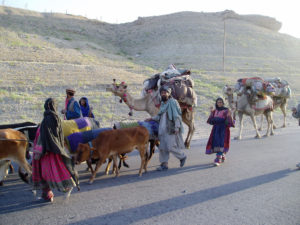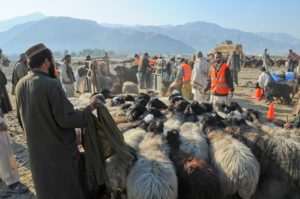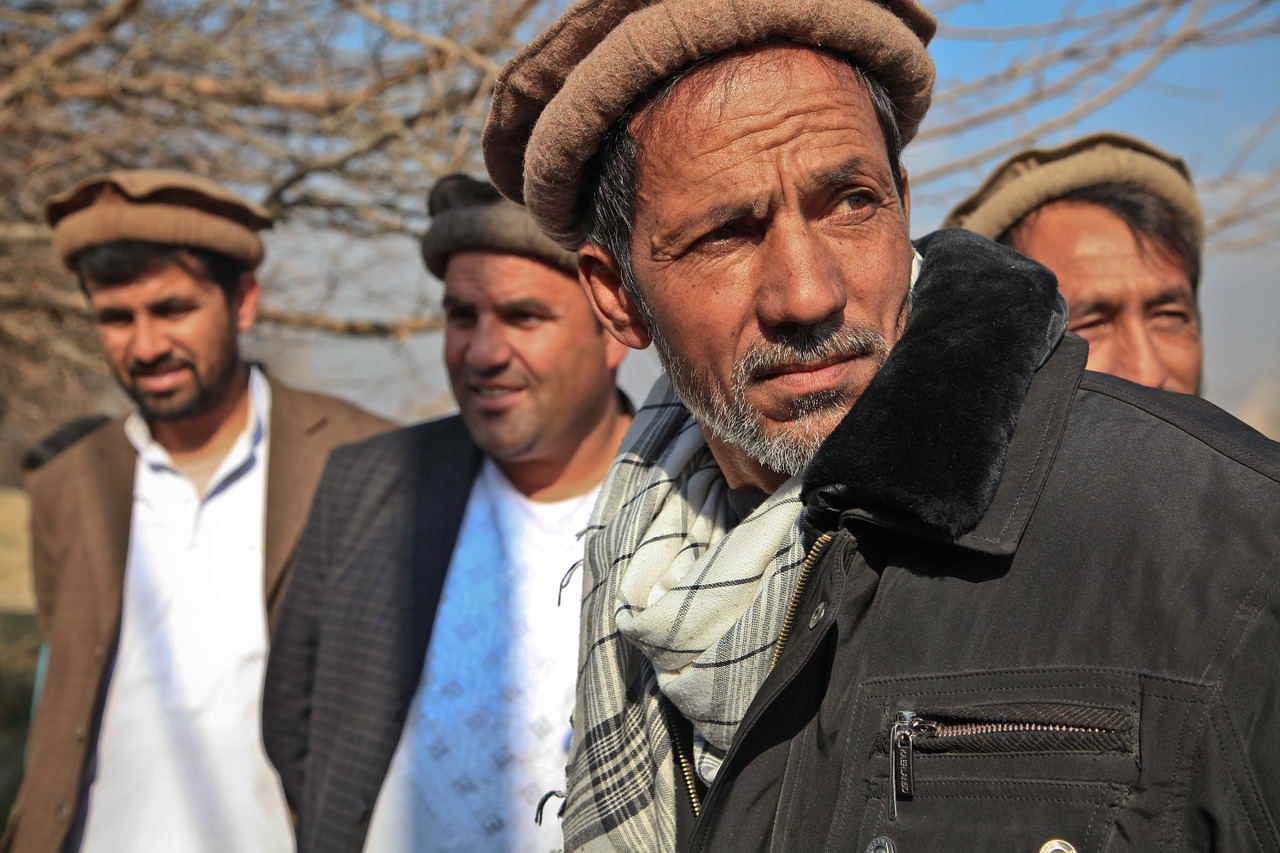Centuries of tradition have woven the story of the Kuchi tribe into Afghanistan’s rich tapestry of history. This year, as the seasons once again begin to change, the nomadic tribe should be making its way toward its winter home. In recent years, however, the tribe has undergone a dramatic decline, almost to the point of disappearing. As a result, few families remain to make the journey across the desert, and even fewer herds will be making the trek to secure quarters. What caused this group of people to be put at risk? Are there ways to save them from extinction? In order to have a clear understanding of the future, it is imperative to understand the history of this group.
Who are the Kuchi?

Image courtesy Tracy Hunter | Flickr
The Kuchi began centuries ago, when a group of Pashtun herders from eastern and southern Afghanistan banded together to maintain their livestock. They would migrate across the country, following the pasturelands to ensure that their herds always had the best areas in which to graze. Eventually, the group became a tribe of sorts not based on ethnic ties, but on social characteristics.
How are the Kuchi organized?
Within the Kuchi, tribes form based on family groupings. Each clan is led by a Khan, the patriarch of the family who governs his core family, as well as any other associated offspring or families. The Khan is responsible for governing his family, ensuring that their basic necessities are met and representing the family in interactions with outsiders.
There are three distinct types of Kuchi: nomadic, semi-sedentary, and traders. The nomadic Kuchi have no designated home. They rely on their herds for sustenance and leverage their ability to trade with others for the things they need. Forced to keep moving in search of better fields and more abundant water supplies, the nomads are always on the move.
The semi-sedentary Kuchi tribes typically spend the winter in the same area, allowing them the opportunity to settle down and form roots. In recent years, more semi-sedentary Kuchis are transitioning to becoming permanent residents, as they are feeling the effects of a lifetime of constant movement.
Kuchi traders, the smallest portion of the Kuchi tribe, are largely responsible for transporting goods between cities and villages.
Life as a Kuchi

Image courtesy ResoluteSupportMedia | Flickr
Growing up as a Kuchi was hard. Similar to traditional Afghanistan customs, the strict division of labor along gender lines is adhered to by the Kuchi. Men are responsible for providing income for their family, generally through the growth, sales, and distribution of livestock. Women are in charge of the upkeep of the home, which is made particularly challenging due to the migratory nature of their lifestyle. They were responsible for child-rearing, collecting water, preparing food, and making tents and clothes.
Kuchis of the Past
During the early 1900s, the Kuchis were the predominant traders in the Middle East, connecting the Middle East with South Asia. Nearly 30 percent of all the livestock (sheep, goats, and camels) of the nation were owned by Kuchi herdsmen, and they would be traded for tea, sugar, or vegetables. In addition, they were money lenders who offered transportation services and served as a source of labor during the harvest. As migratory people, they were able to move to where the work was located.
The Demise of the Kuchi
During the 1950s and ‘60s, economic progress led to the development of a national road system. As a result, fleets of trucking companies were formed, crisscrossing the countryside quickly and delivering food, produce, and other products faster than the Kuchi were able to manage. The Kuchis were dealt a further blow during the ‘70s, when war and drought reduced the once numerous herds. The late ‘90s saw another downturn for the Kuchis, as tribe members were forced to sell off many of their herds in order to make enough money to survive.

Image courtesy ReoluteSupportMedia | Flickr
Without herds, the necessity for migration became obsolete. Many nomadic Kuchis have given up the historic movement across the nation, settling down in various parts of the country to become farmers. However, trying to assimilate members of this group back into society has proven difficult. Children are often uneducated due to a dearth of school facilities. In addition, a lack of political representation has caused them to be overlooked as citizens of the country. In addition, insufficient funding has made it difficult to purchase a place to live. Some cities have populations of Kuchis living in tents near abandoned factories, in desert areas, or in other unsafe parts of the country in an attempt by the men to find work.
Increasing clashes between the Kuchi and other residents over land rights have caused other problems for the nomadic tribes. Economic resources earmarked for humanitarian initiatives often overlook the Kuchis, who need long-term assistance in rebuilding their flocks and in developing an established homeland. Today, most Kuchis lack homes and jobs, a situation that does not bode well for the future of this once proud people. As the nation attempts to hold on to the traditions of the past, the Kuchis must find a way to regroup and once again regain the prominence they enjoyed in the past.

